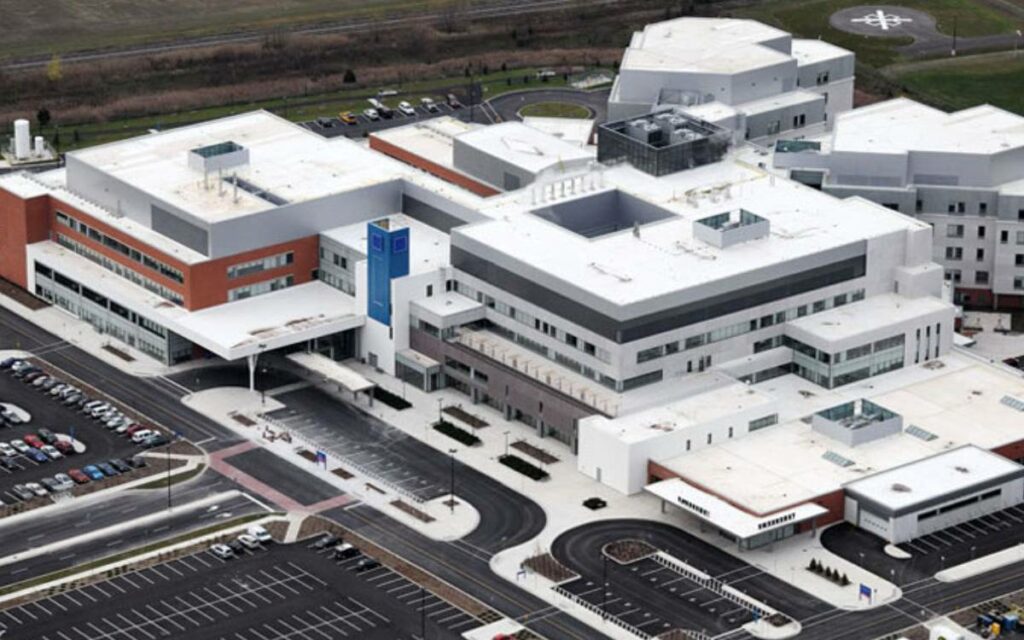
Niagara Health facility in St. Catharines. Photo credit: Infrastructure Ontario
On Dec. 28, Niagara Health implemented a series of restrictions at its facilities.
Visitors are no longer permitted at hospitals.
All Essential Care Partners (ECPs) must be fully vaccinated and will only be permitted at the bedside with patients with a length of stay of seven days or more.
While, support persons are now only allowed in exceptional circumstances.
The clinical team on site determines exceptionality. For inpatients, outpatients, and emergency department patients, circumstances permitting support persons may feature children under 18, adults over 80, an end-of-life scenario, cognitive impairment, physical impairment, and/or labour and delivery, amongst other considerations.
The changes came into effect Tuesday at 12:01am.
According to a media release posted by Niagara Health on Monday, the changes are a result of the recent spike in cases of COVID-19.
“As cases of COVID-19 increase in the hospital and in the community, it is important that we maintain a safe environment for staff, physicians, patients and families,” read the media release. “In an effort to reduce traffic in the hospital and minimize the spread of COVID-19, Niagara Health is implementing new restrictions for visitors, support persons and Essential Care Partners.”
On Christmas Day, Niagara Health declared an outbreak of COVID-19 on the Trillium Unit at its Niagara Falls site as the result of 13 healthcare-associated cases involving patients.
Between Dec. 22 and Dec. 27, 2021, Niagara saw an average of 227 new cases of COVID-19 per day.
Fortunately, the number of deaths and patients admitted to ICU do not follow a similarly steep upward trajectory as case numbers.
As president of the Ontario Association of Radiologists Dr. David Jacobs observed in widely shared Twitter thread on Boxing Day, it appears the Omicron variant – the variant fuelling the uptick in case numbers over the last few weeks – is far milder than previous incarnations of the virus.
“The Omicron wave will not come anywhere near the initially modeled worst case scenario in terms of hospitalization and ICU utilization,” said Jacobs.
“There is far more Omicron spreading through the population then is represented in the official case count. This is good news as it means that the case fatality rate and the hospitalization rate are likely both significantly lower than reported.”
Niagara public health officials confirmed the region’s first case of the Omicron variant last Wednesday.
According to Niagara Region’s latest modeling indicators, over 7 per cent of local cases in the last 28 days were reported to be the Omicron variant.
“We regret the inconvenience this will cause patients and their loved ones, but these measures are needed for everyone’s safety,” said Linda Boich, Niagara Health’s executive vice president of quality and mental health and addictions and executive lead of integrated care.
“We recognize the importance of patients having support on their care journey and look forward to lifting restrictions as soon as it is safe to do so. We thank the community for their understanding and co-operation.”




















